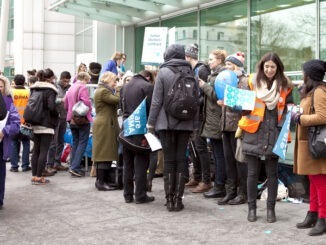
As reported by the RCGP, Professor Kamila Hawthorne, chair of the Royal College of GPs, responds to the statement on BMA ballot for industrial action by junior doctors
She said, “Doctors, indeed all healthcare professionals, working across the NHS need to feel able to do the job to the standards for which they are trained. Yet the GP workforce is currently feeling undervalued in the face of enormous workload and workforce pressures, and this will also have informed the recent junior doctors’ ballot result.
“It is not for the RCGP to comment on or speculate as to the form industrial action may take as this is a matter for relevant trade unions. But no doctor wants to strike, and it would be in everyone’s best interests – especially patients’ – for a resolution to be found, before industrial action becomes necessary.
“Last year around 340m patient consultations were made in general practice, nine per cent more than in 2019, yet numbers of fully-qualified, full-time equivalent GPs has fallen by 734 over the same timeframe. As of December last year, an average qualified GP will be responsible for the care of 2,267 patients, 16% more than in 2015.
“We need more GPs to look after the country’s growing number of patients, and the GPs already working to do this need support if we are to continue delivering safe care for our patients, without this affecting their own health and wellbeing. Our GP trainee doctors also need to see that the working conditions they will inherit are sustainable. The college will continue to make the case to government to provide further support and resources to enable general practice to deliver the best possible care for patients.
“It is essential that we see clear and effectively coordinated communications to patients about any disruptions and how this may impact their care.”


Be the first to comment